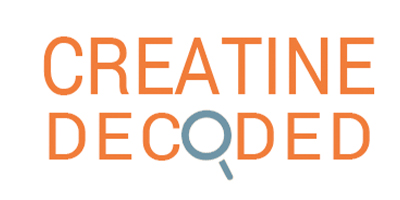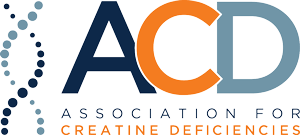
Creatine Decoded: How to Read your Genetic Test Report – Webinar Recap & Video
This essay was written by Erin Coller, ACD Director of Communications with support from Sofia Balog, ACD Patient Registry Coordinator and Laura Trutoiu, ACD Director of Research.
#CreatineDecoded is a quarterly educational essay series that sheds light on research relevant for Cerebral Creatine Deficiency Syndromes (CCDS). The essays feature community contributors, often parents, who with the help of the ACD, explore in their own words the CCDS science you want to know more about. Have a topic in mind? Send suggestions to Laura Trutoiu, ACD Director of Research auract@creatineinfo.org.
Genetic mutations, variants, phenotype to genotype correlations, missense and nonsense… What do all of these terms mean? A genetic variant is a change in the DNA, sometimes referred to as a mutation. Creatine deficiencies are genetic conditions which means that they result from variants in specific genes: SLC6A8 for Creatine Transporter Deficiency (CTD), GAMT for GAMT deficiency, and GATM for AGAT deficiency,
On June 9, ACD, in partnership with ClinGen, hosted a Creatine Decoded webinar to share with CCDS parents and caregivers how to read their genetic test reports and how to participate in the ClinGen Data Sharing Program, to improve understanding of genetic information for creatine deficiencies. I had the pleasure of moderating the webinar and representing the parent’s voice at the table.
As a parent with a professional background in public relations and communication, I had very little knowledge about the science of genes before my son was diagnosed with CTD. I can relate to feelings of being overwhelmed and deeply curious about what my child’s genetic report means. Understanding my own son’s genetic test report and variant information has been a journey over the past four years and I still have a lot to learn. I remember the feeling of shock the first time I looked through the Whole Exome report that informed us about his CTD diagnosis. I had no idea that the long string of letters and numbers in that report carried so much meaning and could eventually be the key to finding a cure or effective treatment for him. As research continues to progress in the search for a cure or better treatments for CCDS, I am learning that it is more important now than ever to know what kind of variant my son has, and learn as much as I can about it. This webinar was a great step toward this goal, and I found that the information was presented in a way that was easy to understand, in simple and relatable terms.
The webinar was led by Juliann Savatt, MS, LGC, Genetic Counselor at Geisinger Health System, and moderated by myself. Sofia Balog, Patient Registry Coordinator for ACD, as one of the main organizers, also shared how the CreatineInfo Registry can enable participants to contribute to research by sharing their genetic information with the ClinGen Data Sharing program.
The webinar included the following topics:
- Introduction to chromosomes, DNA, and genes
- Types of genetic changes (variants) – missense, frameshift, nonsense
- Types of genetic testing
- Other common terms on testing reports – autosomal dominant, autosomal recessive, de novo, inherited, mosaic
- ClinGen Data Sharing Program Opt-in
- How ClinGen and ACD are connected through the CreatineInfo Registry (creatineinfo.iamrare.org )
- How to enroll in the program, if interested
- Benefits of enrolling in data sharing as outlined in the CreatineInfo Registry consent form
- Importance of sharing your genetic information with open databases like ClinVar
Beyond educational value, it’s worth pointing out that each mutation may have its own special approach in research. Two ACD-funded research studies are currently seeking to understand how specific variants may respond to different compounds and depending on the results, potentially customize treatments for specific variants.
An upcoming Creatine Decoded article will dive into the details of these studies, which are working on understanding SLC6A8 variants as well as how each individual variant may respond to a variety of drug compounds in lab tests on cells. It is likely that treatments for GAMT will follow the same path. Additionally, there may be more understanding about different severities of CTD, AGAT, and GAMT based on data gathered from these variants and from the patient registry.
As caregivers, we can become more actively involved in the process of finding treatments for our loved ones, and in order to do that, it is crucial that we start with understanding their diagnosis.
Check out the video below and let us know what you learned. What would you like to learn more about?
The live webinar included a Q&A session for attendees that will not be posted. However, some of the general questions will be answered and shared in an upcoming blog post update. Stay tuned!
Resources:
Learn more about the ClinGen Data Sharing Program:
clinicalgenome.org/genomeconnect/for-advocates-groups/overview-videos
“How to review a ClinVar record” Guide by ClinGen: clinicalgenome.org/genomeconnect/how-to-search-clinvar
Learn about the CreatineInfo Registry:
Questions? registry@creatineinfo.org





